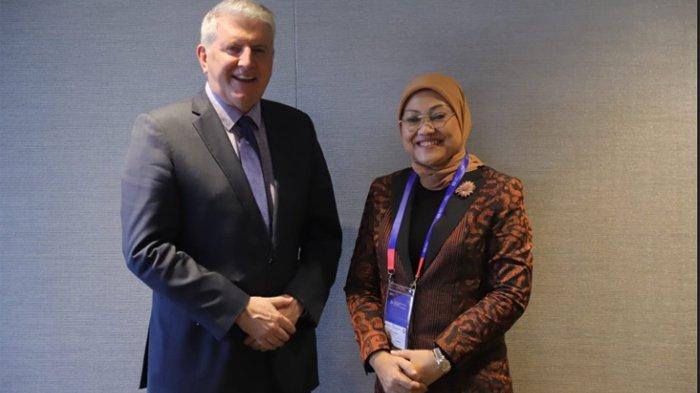Singapore: Singapore President Halimah Yacob and International Labour Organization (ILO) Director General Gilbert Houngbo opened the ILO’s 17th Asia and the Pacific Regional Meeting (APRM) in Singapore on Wednesday. The meeting opened with highlighting the need for inclusive growth as the regions build back from the COVID-19 pandemic.
The 3-day event from 6-9 December, is set to discuss state of work in Asia, Pacific and Arab States. The conclusions will help shape the direction of national labor, employment policies.

More than 500 delegates from 48 member countries taking part include 19 ministers and vice ministers. Besides representatives from 33 workers’ and employers’ organizations are also attending APRM.
“The Regional Meeting provides us a platform to unite in dialogue to navigate the uncertainties that lie ahead of us. The pandemic and recent economic upheavals have given us another opportunity to rethink our growth model. The ILO plays a critical role in ensuring inclusive growth model where everyone has a stake,” said the President Yacob.
ILO DG Houngbo highlighted how the COVID-19 pandemic, combined with political, economic and climate crises had pushed social progress backwards. He added, “More than ever, workers are getting by on informal work, jobs that provide little social protection and security. We are now living under circumstances when labor standards, employment policies and social protection matter more than ever.”
“We want everyone to be able to share equally in the benefits of future, human-centred growth,” he added.
Labour markets in Asia-Pacific and Arab States have recorded a partial rebound from the impact of COVID-19. Yet with conditions expected to remain difficult into 2023 prospects for investment, growth and full labour market recovery remain elusive.
DG Houngbo highlighted that even without the considerable impact of the COVID pandemic, structural weaknesses within the Asia-Pacific and Arab States labour markets hampered decent and equitable job growth.
Some of the major issues facing both regions were lack of social protection, stagnant labor productivity and high levels of informality. Gender equality gaps and high unemployment rate of youth also marked essential areas of concern.
“With effective pro-employment policies, more social protection, a respect for labour rights, constructive social dialogue and an enabling business environment, countries can equip themselves to benefit from the future of work,” he added.
The ILO DG also stressed the importance of well-functioning labour market institutions.
“We saw during the pandemic response how the countries that had stronger labour market institutions were able to counteract some of the crisis shocks more efficiently and effectively,” he said.
However, the DG recognised the challenges faced by ILO member countries to commit more resources during the current economic climate.
“It is not an easy task to scale up action toward the ILO’s decent work and social justice mandate. To advance through these turbulent times, we need to heighten our partnership with the multilateral system and work together through a Social Justice Coalition,” he added.










